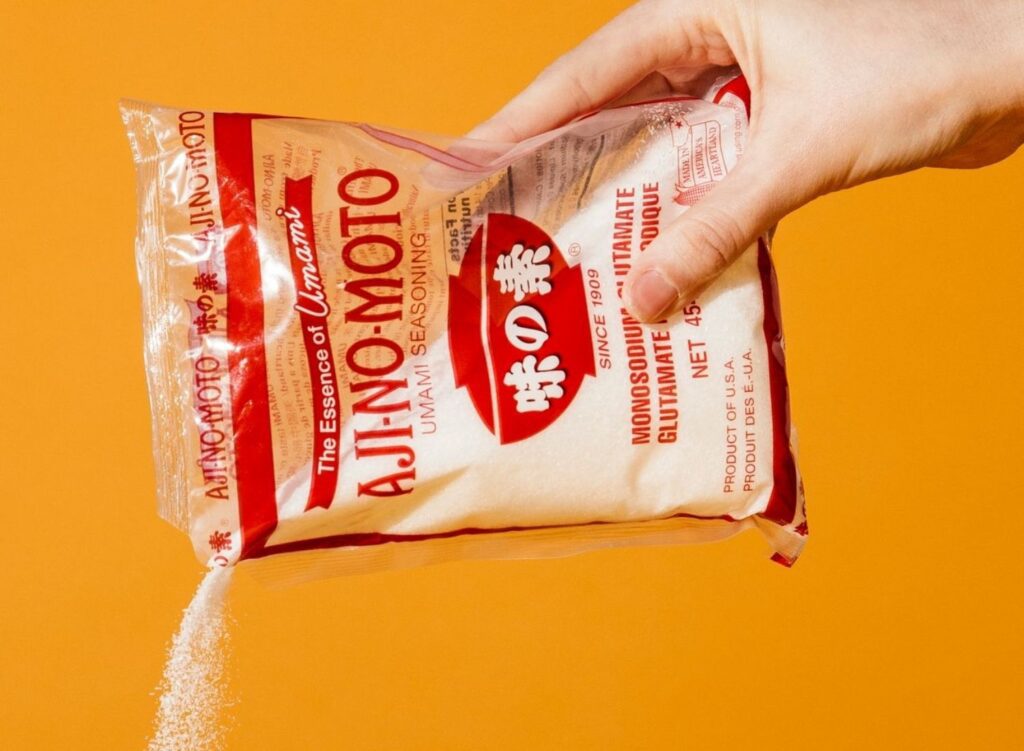Over the years, Monosodium Glutamate or MSG has been demonized as a “hazardous” food additive. However, that is far from the truth. MSG is commonly used in Asian cuisine for preparing meats, soups, broths, ramen, etc.
Glutamate is a naturally occurring amino acid. It is found in tomatoes, parmesan cheese, mushrooms, and is even produced by the human body.

We are aware of the 4 basic tastes – sweet, sour, salty, and bitter. There is a fifth taste called umami that translates to “pleasant savory taste.” It is also known as the purest form of glutamate. We have different taste receptors on our tongue that can detect umami which is distinct from the other four commonly known tastes.
Origin of Monosodium Glutamate

MSG was discovered by Dr. Kikunae Ikeda, a Japanese biochemist, when he was having a broth that his wife had made. He asked her the secret to its delicious taste which turned out to be kombu seaweed. When the soaked seaweed was added to broths and soups, it resulted in a mouthwatering treat.
He realized that there is a common taste which is observed while eating tomatoes, cheese, meats, and the seaweed broth. That “taste” was nothing but glutamate.
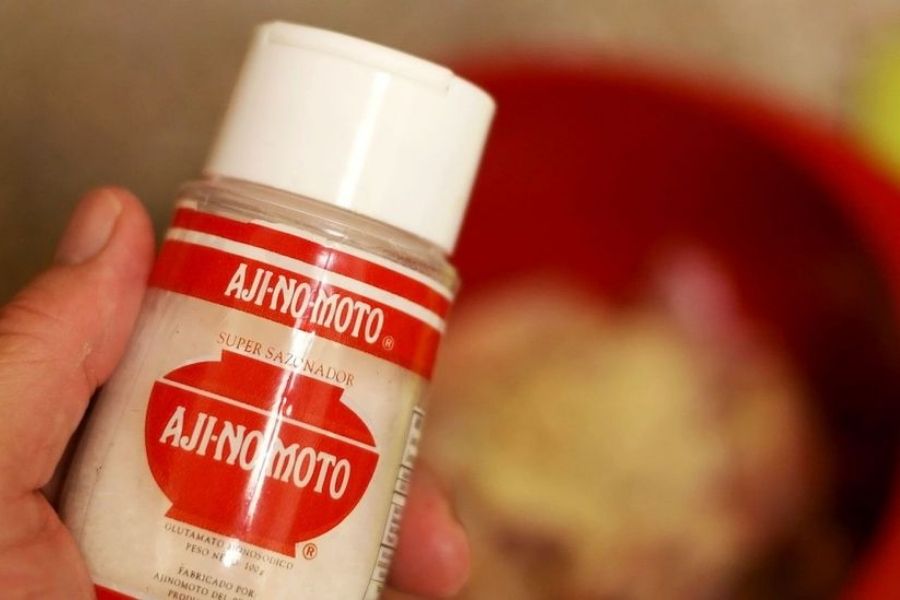
He established through his research that glutamic acid can be produced naturally with the help of fermentation of protein. He simply stabilized it with salt, which is now known as MSG or Ajinomoto.
3 myths about MSG that should be debunked
1. MSG is a toxic chemical
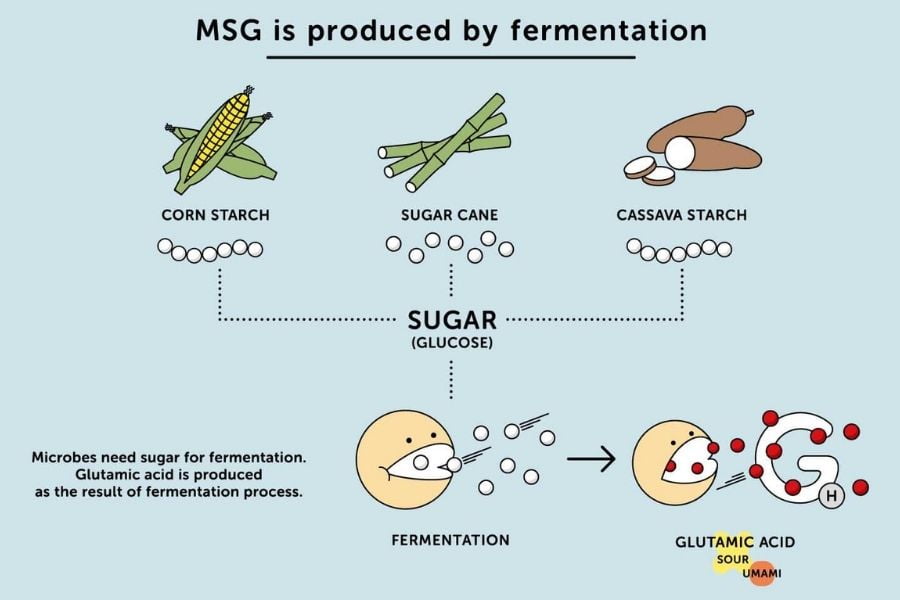
MSG is prepared through the fermentation of starch found in sugar cane or corn. The process of fermentation helps to isolate the glutamate from the starch which is then stabilized with sodium/salt. Thus, the result – monosodium glutamate.
2. MSG has more sodium than table salt
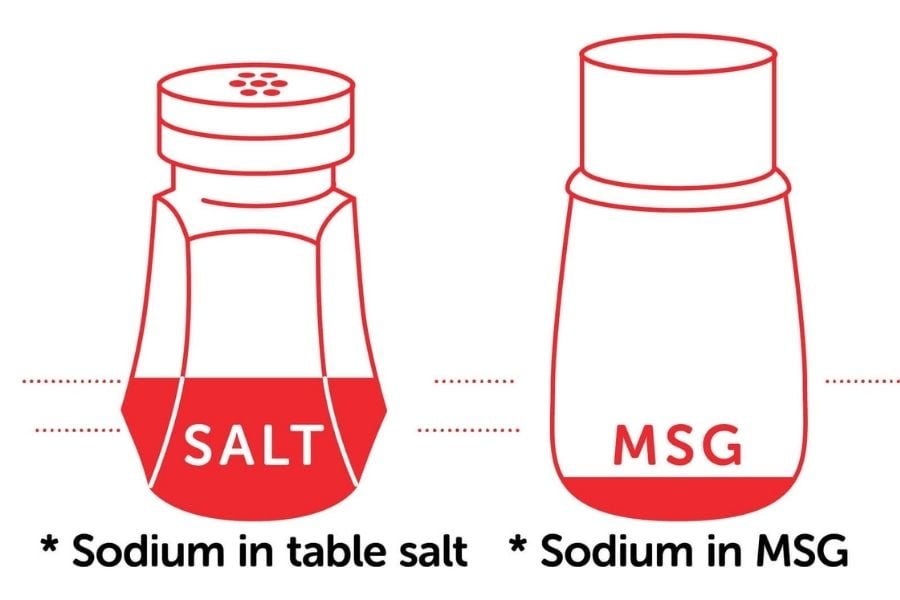
MSG has 1/3rd of sodium content as compared to table salt. It can be used in regular cooking because it can improve the flavor while reducing the need for salt.
3. It can result in an allergic reaction
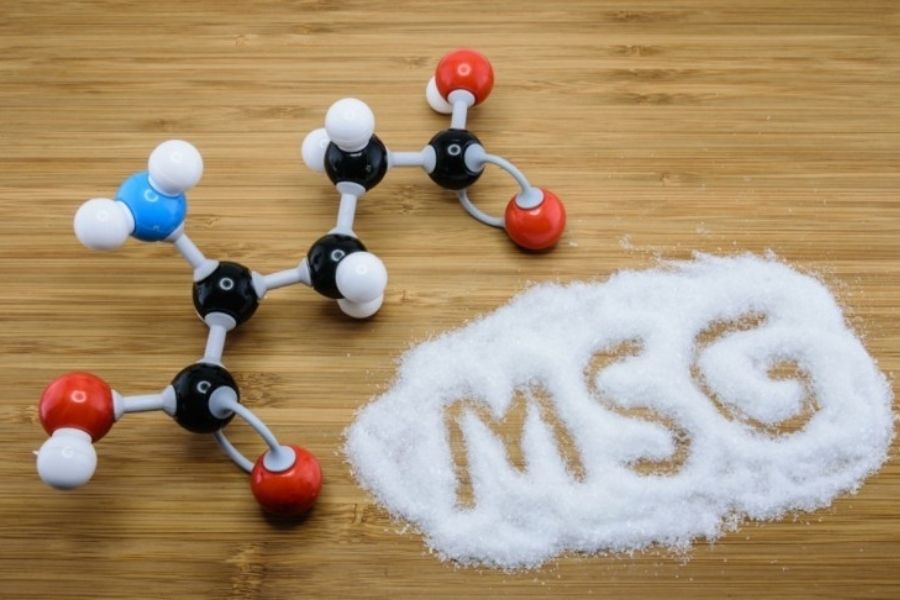
The Food Development Association has rendered MSG a GRAS designation which means “generally recognized as safe.” Our body can’t differentiate between naturally occurring glutamate and MSG, because in reality, there is no difference. MSG is plant-derived with some added amount of sodium.
The Bottom Line
Arguments against MSG are usually regarding its presence in packaged food which is added for a savory kick. Packaged food, with or without MSG, is harmful due to its nature of being processed. However, you can sprinkle it over soups, salads, literally anything, and enjoy a homemade meal of savory deliciousness!
Subscribe to our channels on YouTube & Telegram

